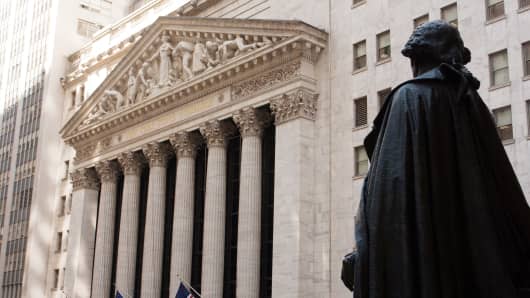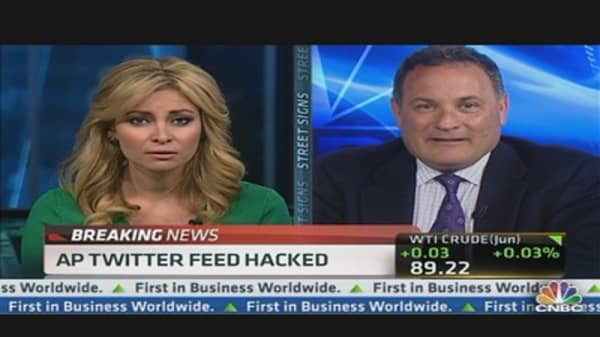The fake tweet that sent the stock market scurrying Tuesday should be a "wake-up call" to regulators that social media presents a major threat to investing, traders said.
Sparking memories of the Flash Crash that sent markets spiraling nearly three years ago, Wall Street took another jolt after someone apparently hacked the Associated Press Twitter account, and tweeted that there had been two explosions at the White House and that President Barack Obama was injured.
(Read More: Markets Plunge Briefly on Fake AP Terror Tweet)
For Sal Arnuk, a principal at Themis Trading who advocates reform of the high-speed machinations that have taken over trading, the memories were all too familiar.
He's seen the market undergo numerous stressful episodes that have, for the most part, eluded the Securities and Exchange Commission.
"At what point do we actually see the SEC recognize that they've created a marketplace that they can't control?" Arnuk asked. "Where did the fake Tweet come from? A kid in Uzbekistan? A hedge fund in India? A Russian mobster? Who can regulate it? The answer is, no one at this point."





